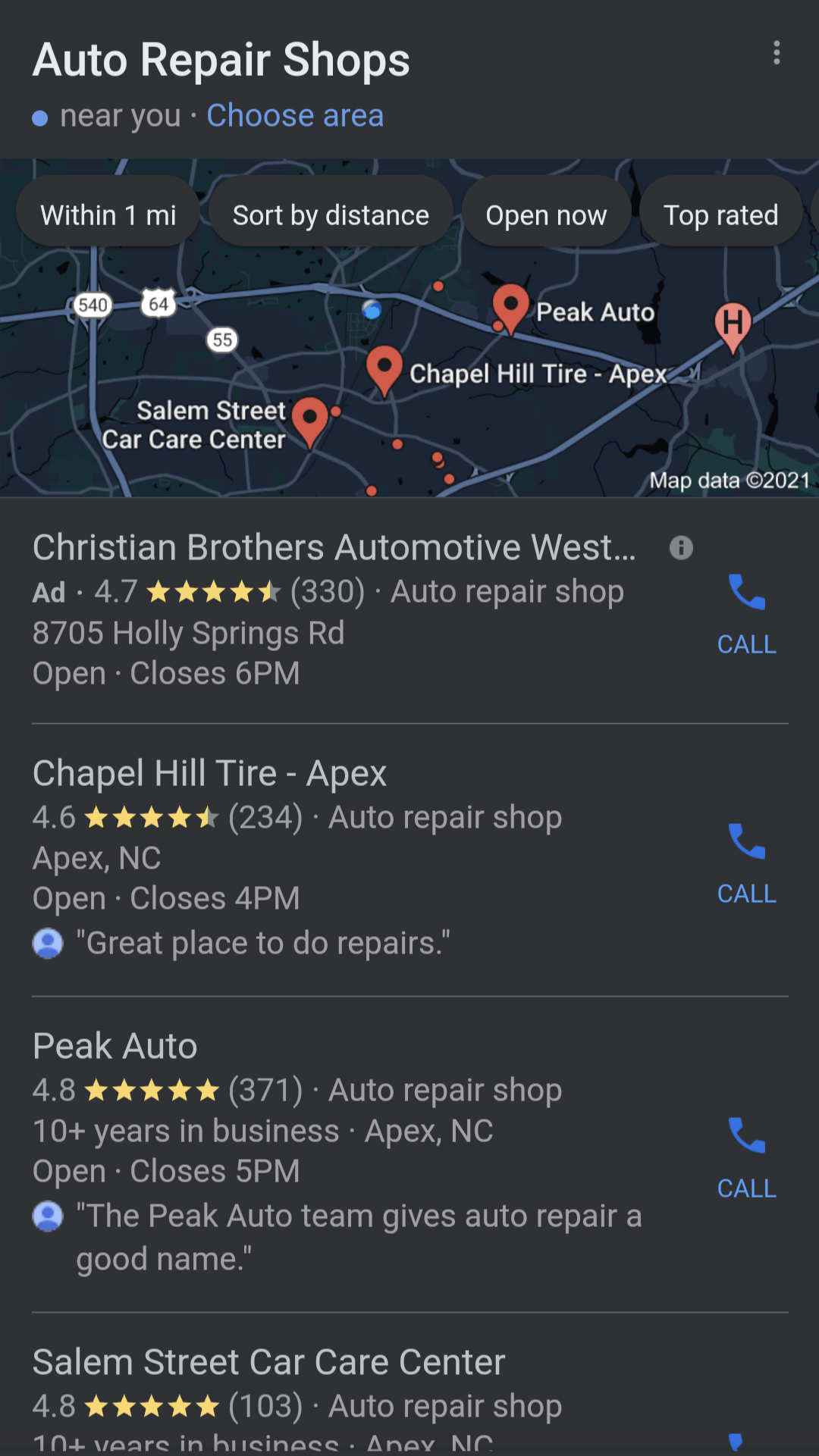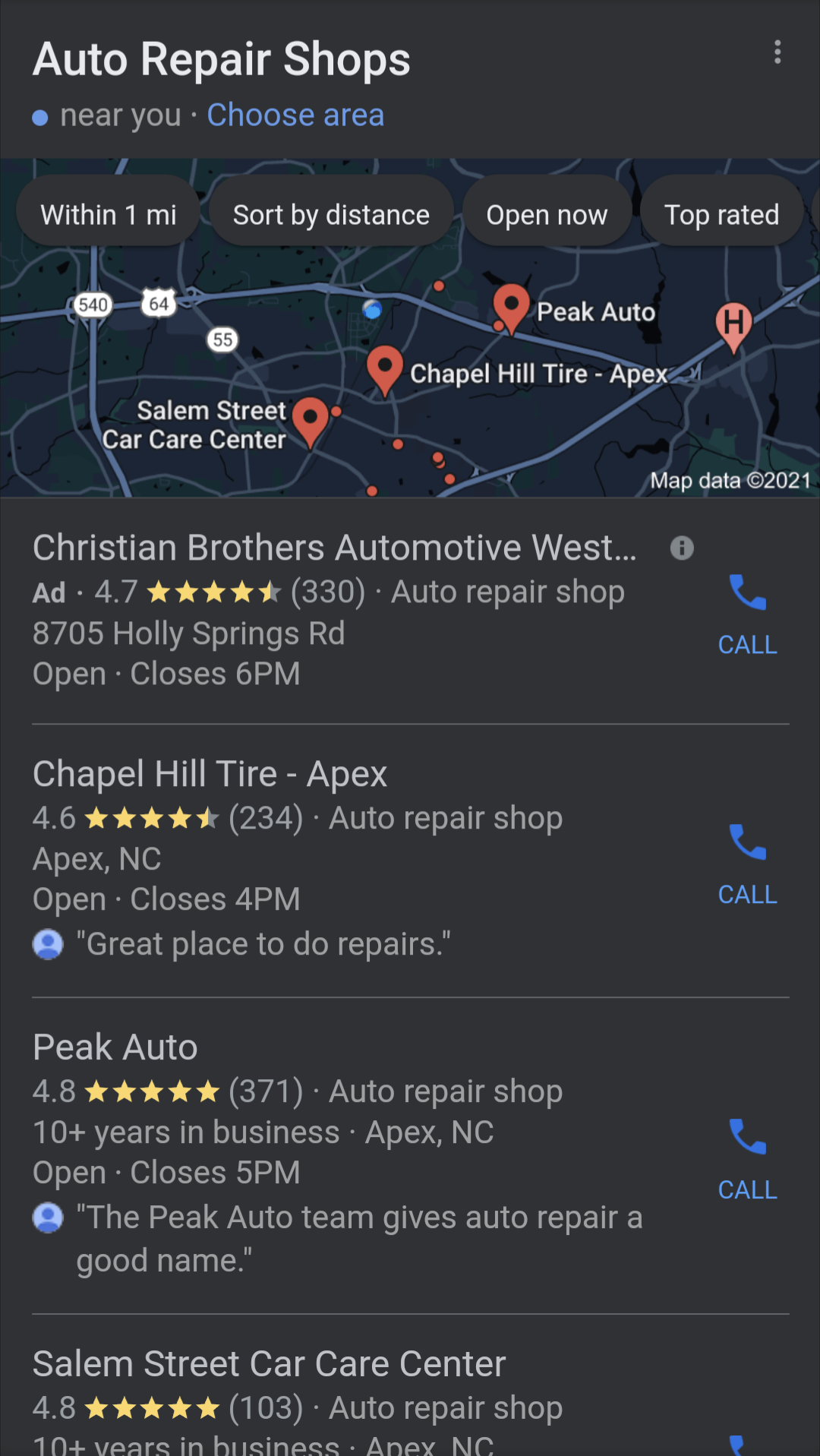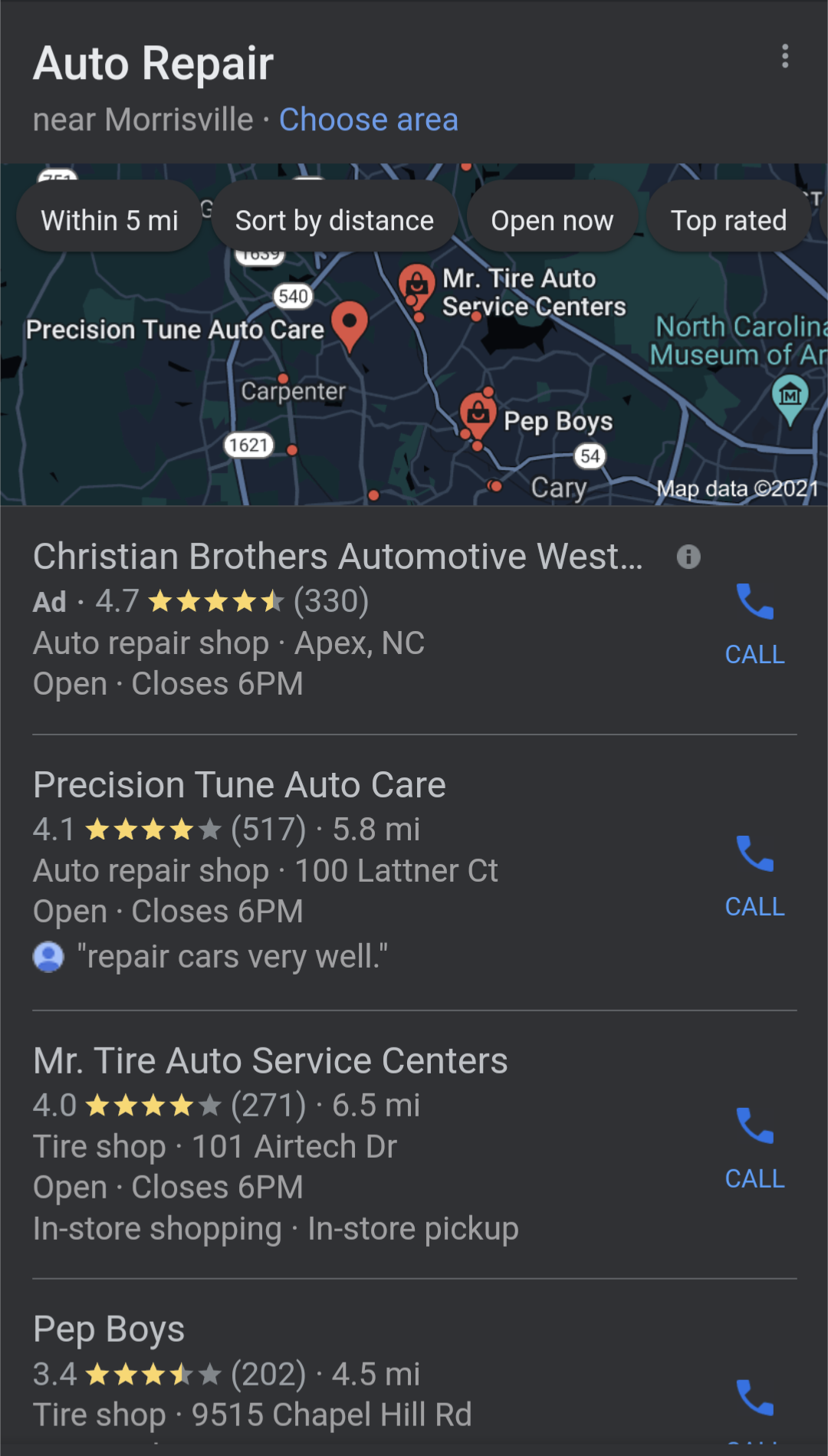
Search Results Are Complicated
It goes without saying that search engines are advancing in complexity every single day. As search engine technology evolves, it’s imperative that our understanding evolves with it. The biggest gap in understanding that I’ve seen recently and consistently is the amount of undue importance that the ranking report receives. To put it simply, Google has gone all-in on hyperlocal search results. Search engines simply aren’t behaving the same way they were a few weeks ago, a few months ago and are completely different to how they behaved a year ago. Search results have become incredibly dynamic, and they are absorbing more information on the fly than ever. The end result? Non-stop shifting search engine results pages that are constantly sending in more information than you intend in order to serve you up the results that they believe you need most. Let me be clear: Rankings are still vital to track for any successful campaign, and, in my opinion, represent about 45% of what a person should be looking into when gauging the health of their SEO program. The other 55%, the bigger piece of the pie, is how your organic traffic is progressing month over month, and year over year, but more on that at a later time. Let’s focus on the topic at hand.
Why are my rankings not as reliable as I think they are?
10 years ago, if I wanted to rank for “auto repair in Charlotte,” I would optimize for auto repair, I would optimize for Charlotte, and when someone went to make that search, Google would consider all shops in Charlotte as a possible result and then sort based on who had the best metrics. While the person with the best metrics is still winning, the rules of the game have changed ever so slightly. Now, if a person were to make an “auto repair in Charlotte” search, Google would first ping their location, regardless of if you included “Charlotte” in your search or not. To test this out, try the search for yourself. Go to Google, and enter in just “auto repair.” Unless you have gone out of your way to alter your settings, you should still see incredibly hyper local results. I don’t just mean local to your city either, I mean local to your relative location within your city.
So my lab results are not correct?
They are and they aren’t. When any software tries to track a ranking, it starts with its own Google search. The best ranking trackers today are capable to drilling down to your local city, and that’s where the drill down ends. What ends up happening is the results that get reported, while targeted to your city, are based on the general city — which is NOT what an actual searcher will be seeing. If you are in one place geographically and you make a search, and then go to a different street and make the same search, you are almost guaranteed to get slightly different results as Google adjusts for your pinged location. This is how searches are actually happening at the granular level by people who end up becoming converting customers. Ranking reports, at the end of the day, are automatically generated reports by robots that, at least in this point in time, can not replicate the conditions of what we would consider an “organic searcher.”
To illustrate this point, I did a little mini road-trip around the city, stopping at a few places to make a search for “Auto Repair.” Here are the results.
The first search:

The second search, which I only went across the street:

Third search, where I actually drove about 5 miles away:

The first two searches are near identical. However, the second search and the third search, and the first search and the third search, vary in a major way. They don’t even share the same top 3. Even though the last search was made from a few miles up the road, Google still made an on-the-fly adjustment to my search to serve me more accurate results based on my location at the moment I made the search.
Are rankings not important anymore?
Organic rankings are still incredibly important and can provide valuable insight into how your website is performing as a whole organically. That said, they aren’t nearly as reliable as they were 5 years ago, 3 years ago, or 3 months ago. In order to get a complete understanding of how your website is performing, it’s imperative that you look at your ranking report in conjunction with your organic search analytics. For example, if you are a shop that is on the outskirts of a major metro city, your ranking report will always be lower than what you’re actual ranking is for the people in your local area making searches. So, if one were to only look at the ranking report and were making big SEO decisions based off that alone, it’s possible they could find themselves actually hurting the campaign they are working on as they start risking over-optimization.
Can accuracy be improved?
We are always tweaking our ranking reporting system in order to be more accurate, regardless of what tricks Google may be up to. Ultimately, technology isn’t in a place where anyone can recreate ultra local searches that perfectly resemble what an actual human would search and see. That said, Autoshop Solutions has made great efforts into making sure your rankings are as accurate as currently possible so you always know how your account is performing.
Charlie Needham
